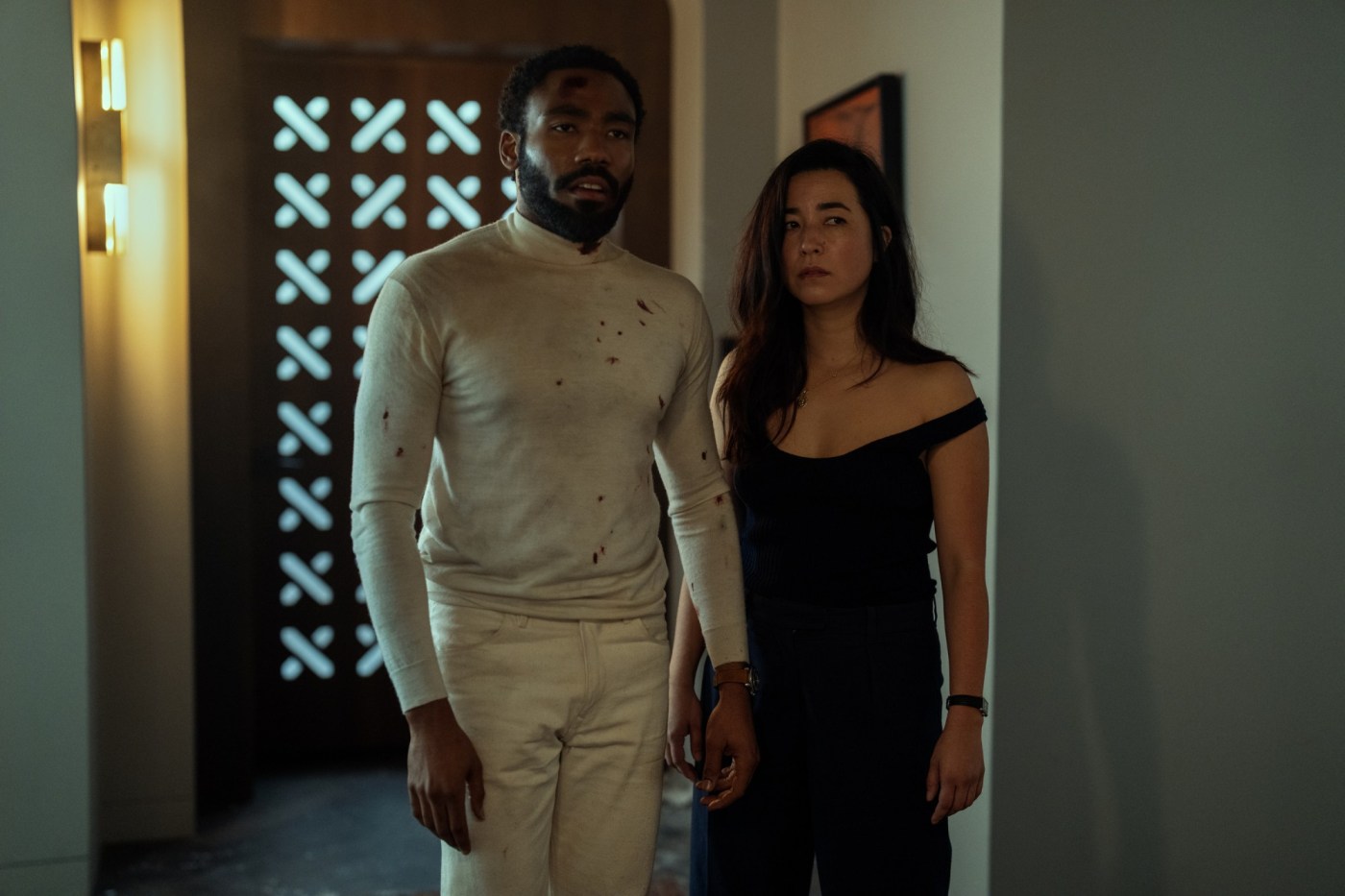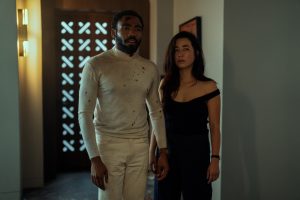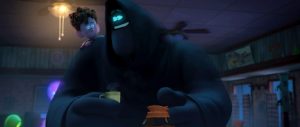
How ‘Moonlighting’ and ‘Hart to Hart’ inspired Donald Glover’s new Prime series
For anyone expecting Prime Video’s new series “Mr. & Mrs. Smith” to be a retread of the Brad Pitt and Angelina Jolie action flick, don’t. Or if you’re thinking that the series, which features Donald Glover and Maya Erskine, will bear much resemblance to Glover’s “Atlanta,” well, don’t.
While the series features explosions, shootouts, fisticuffs and car chases, Francesca Sloane, who co-created the series with Glover and serves as showrunner, says this new “Mr. & Mrs. Smith” de-emphasizes action in favor of a frequently funny character study about relationships.
“We were inspired by ‘80s shows like “Moonlighting” or “Hart to Hart,” taking these prestigious but White worlds then throwing our two characters in the mix as a commentary on them,” says Sloane, who previously wrote for “Fargo” as well as “Atlanta.”
“But we wanted to use the missions and action to support their relationship – we should always be learning something about these two people by way of the action.”
Sloane spoke recently by video about her path to her showrunner debut and about the series, which launches Feb. 2. This interview has been edited for length and clarity.
Q. How did splitting your time as a child between Philadelphia and El Salvador shape you?
My grandparents are from El Salvador, so I would spend every summer there and it shaped me a great deal – you understand class very differently from a very young age.
When I was eight years old, I was shot at. I was with my sisters and the driver was someone who usually was just a silly fun friend but these people were chasing after our car so he also took out a gun and suddenly they’re shooting at each other. As a child, when you see guns, you immediately think, “Bad guys.” I realized that day that there is no such thing as just good and bad. It created such a profound sense of nuance of humanity to me at such a young age.
Q. Did you always want to be a writer?
The moment I knew how to write words, I was writing stories. I was a very shy, obscenely shy, kid. I would not speak unless I was home with my sisters and my mom. I just wanted to digest and reflect and think about the world before being a participant. Other people seemed excited to say things and I just wanted to watch them.
Also, this is not a good lesson and I will not necessarily repeat this to my own kid, but in high school, I would cut school and just go to the movies. There were these independent movie theaters that showed a lot of international films and indie films. And I would just bounce from theater to theater. I saw “Rosemary’s Baby” and it just blew my mind that something could be that dark and that funny and that strange, that you could tell stories like that and get away with it.
But I never in a million years imagined doing this professionally. I went to Cal Arts and my parents were big on education and weren’t thrilled that a non-trust fund kid went to an art school in L.A. But I just wanted to make stuff. I studied film and video and made experimental videos – Cal Arts is very anti-narrative actually. None of what I made was good. A lot was really pretentious.
Afterward, I did every job you can imagine, from serving tables to cleaning houses, but I never stopped writing. Finally, I decided to get my master’s at UCLA, thinking, “How lovely would it be to be a screenwriting teacher or a creative writing teacher and be able to be surrounded by students who daydreamed about writing all day.” I didn’t imagine having that on a professional level. I really feel so fortunate that this brain of mine was able to find a way to actually have a career utilizing it.
Q. At a certain point, John and Jane Smith’s relationship shifts from rom-com banter to something more dramatic. Was that always planned or did it evolve?
We wanted to show the entire duration of an intense relationship within eight episodes so it had to get to a point where things get real and emotionally dramatic. But the collaboration with our directors and the chemistry between Maya and Donald becoming more real dictated the words on the page. I’d spend time while shooting rewriting for what the show needed to become. I learned that the show tells us what it wanted it to be rather than the other way around. It was a journey of finding where this relationship was supposed to go.
Q. Are they compatible? Can they stay together if they aren’t?
In 2020, when Donald approached me about the show, I had just gotten married. I had not wanted to get married, but the pandemic really bonded my husband and I and made us sort of reevaluate why we are here and mortality. Since then I’ve had a baby and lost my father and learned how much you change as you go through life so the chances of staying the same and totally compatible are slim to none. What makes it worth spending your time with that person? It kind of becomes a numbers game of happiness. Part of why I really enjoyed writing the two of them this way is that I don’t know if they’re necessarily compatible.
Q. Was this very different from writing for “Atlanta”?
Writing “Atlanta” was the most liberating writing experience I’ve ever had — we could go anywhere, just follow the path that feels right. Donald and all the writers in that room wrote from their gut – it was way more about making you feel something than getting from point A to point B.
But this show needed guidelines and guardrails. It was a lot more challenging trying to sort of fold in tropes from both romantic comedies and spy films while still trying to make this very genuine character study. It was probably the hardest thing I’ve ever had to do. But in that challenge, it was also the most satisfying when we were able to hopefully pull it off.
Q. Race was front and center in “Atlanta.” It’s less so here but it never disappears completely. Was it important to make sure sensitive subjects like that remained in the mix?
As people of color, Donald and I write things that feel as real as possible. We are also sort of naughty kids and it’s important to get close to the edge and sometimes even go over a little so we put that stuff in because it felt fresh and it felt honest to us.


